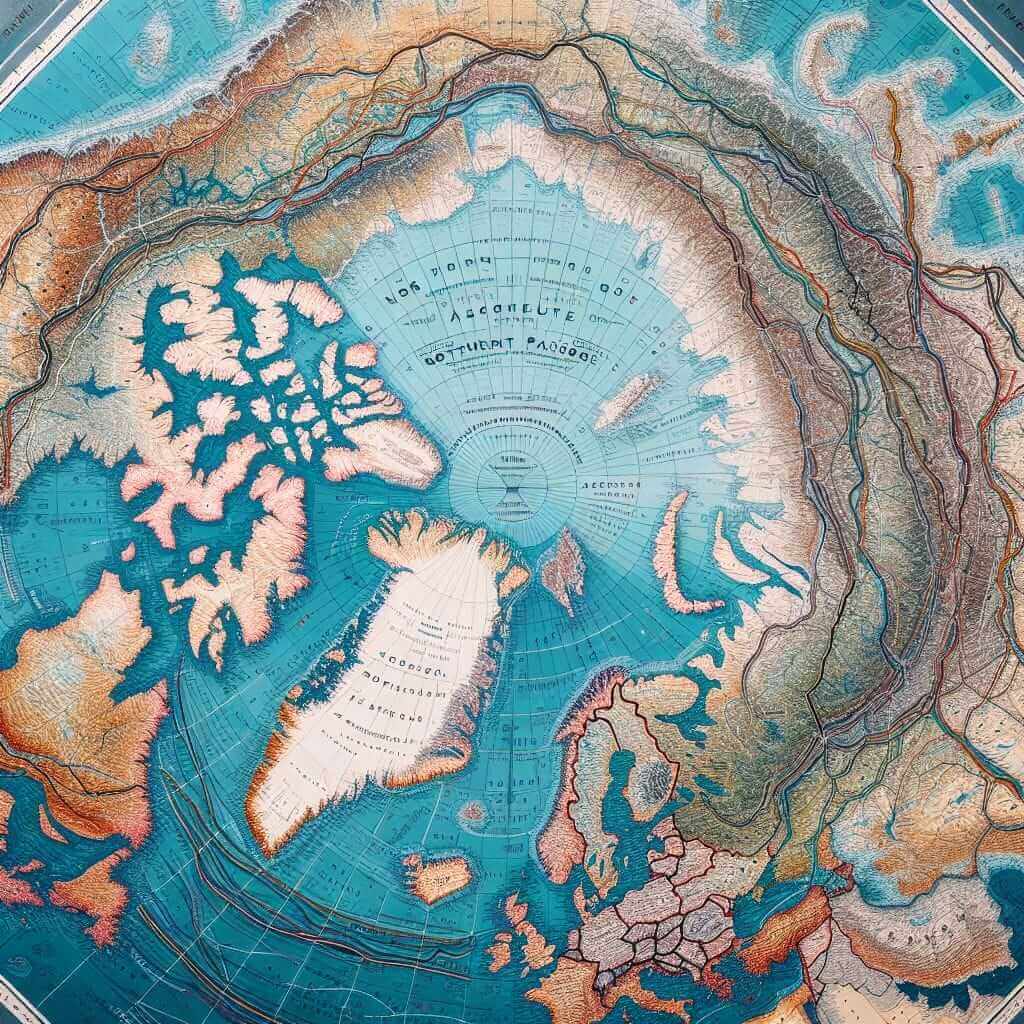The IELTS Reading section is notorious for its challenging passages and complex question types. Given the multitude of topics that can appear on the test, it is essential to be prepared for contemporary issues, such as climate change and its impacts. One topic that has been gaining attention and might be featured in future IELTS exams is the impact of climate change on global trade routes.
In the past, IELTS exams have featured various themes related to environmental changes and economics, making this topic highly relevant. As we delve deeper, you’ll see why this is important and how it can be applied to your IELTS practice.
Practice Reading Passage: The Impact of Climate Change on Global Trade Routes
Passage
The global climate is changing at an unprecedented rate. With rising temperatures, melting polar ice caps, and increasing severity of weather patterns, the effects of this transformation are manifold. One of the critical areas influenced by these changes is global trade routes.
Historically, trade routes have been determined by geographical and climatic factors. The most notable are the Arctic routes, previously obstructed by year-round ice. However, contemporary warming trends have caused significant ice melt, rendering these routes navigable for longer periods each year. The Northeast Passage, running along Russia’s northern coast, and the Northwest Passage through the Canadian Arctic Archipelago have both observed increased traffic.

This phenomenon offers both opportunities and challenges. On the one hand, the reduction in ice levels can shorten shipping times and distances between major markets. Notably, routes between Europe and Asia can bypass the Suez Canal, reducing transit times by about 40%. On the other hand, these routes are not without peril. The Arctic environment remains harsh, and moving through these waters requires specialized vessels and expertise in ice navigation, which poses significant challenges.
Moreover, the advent of new shipping lanes may have geopolitical and environmental repercussions. For instance, as Arctic nations assert control over these newfound pathways, disputes over sovereignty may arise. Environmentally, the increased traffic could lead to ecological disruptions, threatening already vulnerable habitats and species.
In conclusion, while climate change has opened new avenues for global trade, it also introduces a complexity that needs to be navigated cautiously. Stakeholders must weigh the benefits against the potential risks to ensure sustainable and peaceful exploitation of these emerging routes.
Questions
Multiple Choice
-
Which route has become more accessible due to melting ice?
- A) Suez Canal
- B) Panama Canal
- C) Northeast Passage
- D) South China Sea
-
Which of the following is NOT a potential consequence of using the Arctic routes?
- A) Reduced shipping times between Europe and Asia
- B) Increased risk of environmental disruption
- C) Stability in geopolitical relations
- D) Requirement for specialized vessels
True/False/Not Given
- The Northwest Passage is experiencing reduced traffic.
- The Suez Canal remains a faster route between Europe and Asia compared to Arctic routes.
- Arctic trade routes require expertise in navigating icy waters.
Matching Headings
- Match the following paragraphs with the appropriate headings:
- Paragraph 1: Overview of Climate Change Impacts
- Paragraph 2: Historical Context and New Opportunities
- Paragraph 3: Arctic Routes and their Challenges
- Paragraph 4: Geopolitical and Environmental Concerns
- Paragraph 5: Conclusion and Future Considerations
Summary Completion
- Complete the summary using words from the text:
Climate change has led to the (A) of Arctic ice, making previously inaccessible trade routes available. The (B) and (C) passages now see increased use, providing shorter travel times. Nonetheless, these benefits are countered by (D) and specialized vessel requirements.
Answers
- C) Northeast Passage
- C) Stability in geopolitical relations
- False
- False
- True
-
- 1: Overview of Climate Change Impacts
- 2: Historical Context and New Opportunities
- 3: Arctic Routes and their Challenges
- 4: Geopolitical and Environmental Concerns
- 5: Conclusion and Future Considerations
- A) melting
- B) Northeast
- C) Northwest
- D) environmental risks
Common Mistakes
- Misinterpreting complex sentences.
- Skimming too quickly through passage leading to missing critical details.
- Confusing Not Given with True/False answers.
Vocabulary
- Unprecedented /ʌnˈprɛsɪdɛntɪd/: never done or known before.
- Manifold /ˈmanɪfəʊld/: many and various.
- Archipelago /ˌɑːkɪˈpɛləɡəʊ/: a group of islands.
- Geopolitical /ˌdʒiːəʊˌpɒlɪˈtiːk(ə)l/: relating to politics, especially international relations, as influenced by geographical factors.
- Sovereignty /ˈsɒvrɪnti/: supreme power or authority.
Grammar
- Relative Clauses: “routes, which were previously obstructed by year-round ice, have seen…”
- Passive Voice: “have been determined by geographical and climatic factors.”
- Subjunctive Mood: “It is crucial that stakeholders weigh the benefits against the risks.”
Tips for Excelling in IELTS Reading
- Practice Regularly: Use diverse topics to broaden your understanding.
- Improve Time Management: Allocate time wisely between reading and answering questions.
- Build Vocabulary: Expand your lexicon through regular reading and note-taking.
- Understand Question Types: Familiarize yourself with the various question formats.
- Review Errors: Learn from mistakes by understanding why certain answers were incorrect.
By focusing on these strategies and understanding the potential impacts of climate change on global trade routes, you’ll better prepare yourself for the IELTS Reading section. Happy studying!